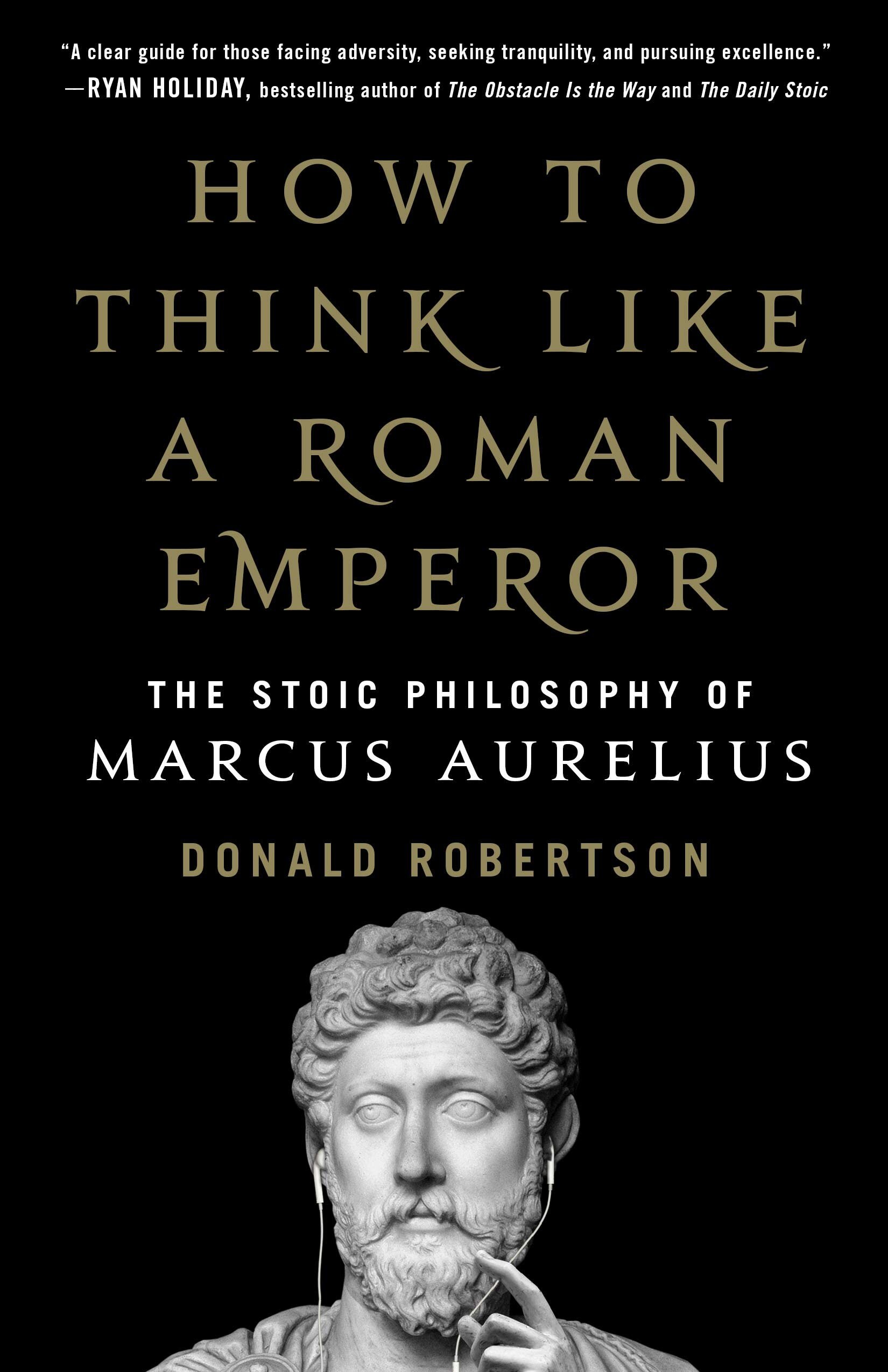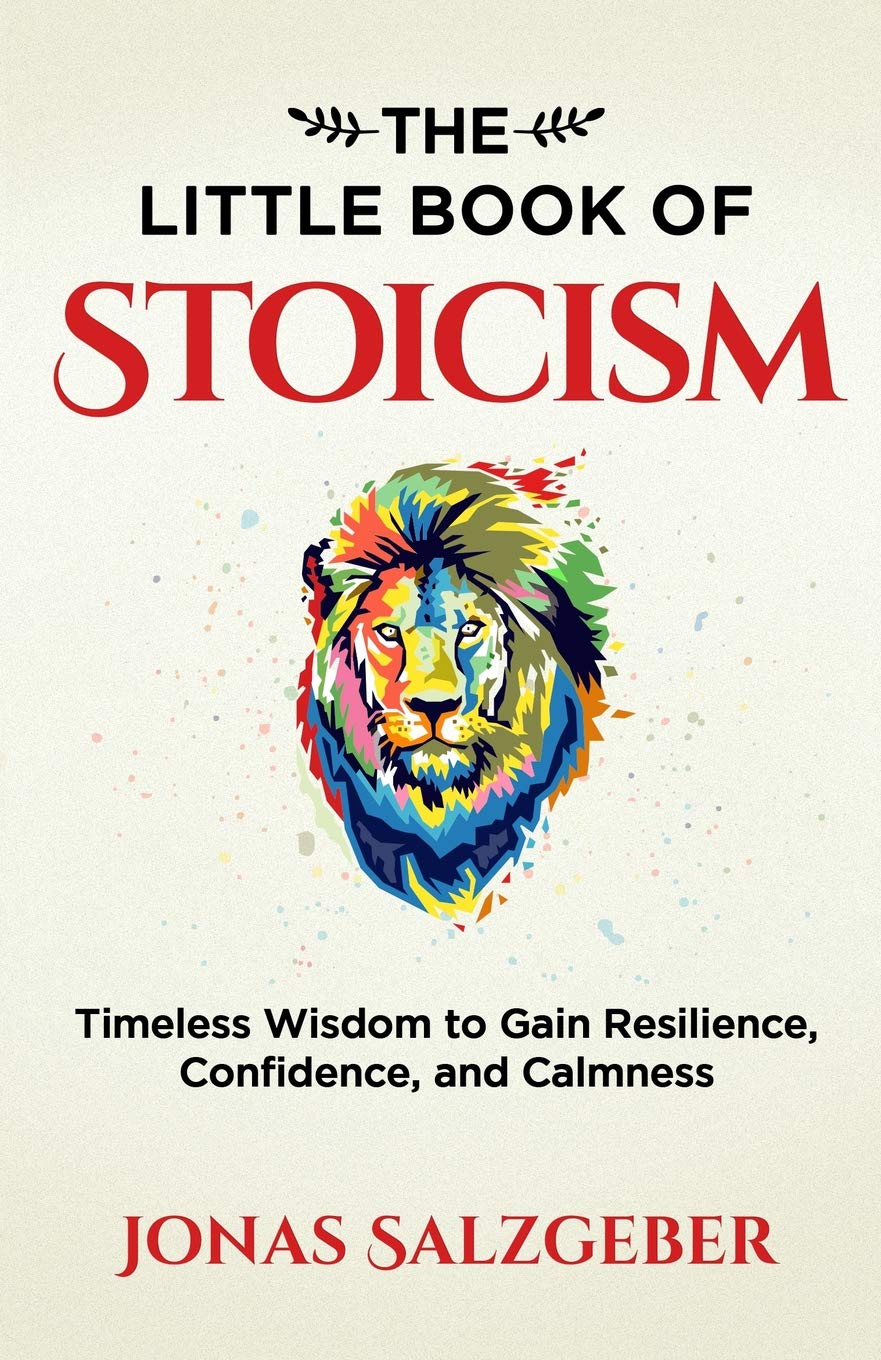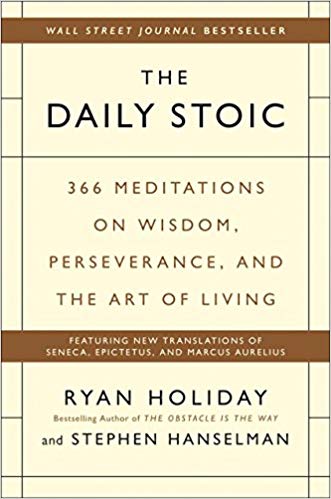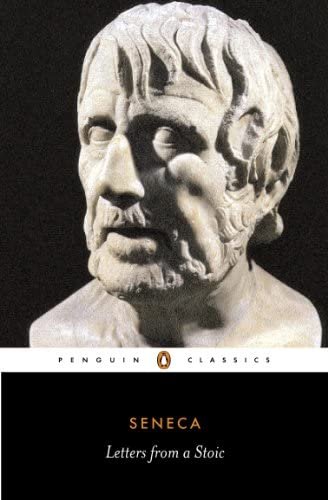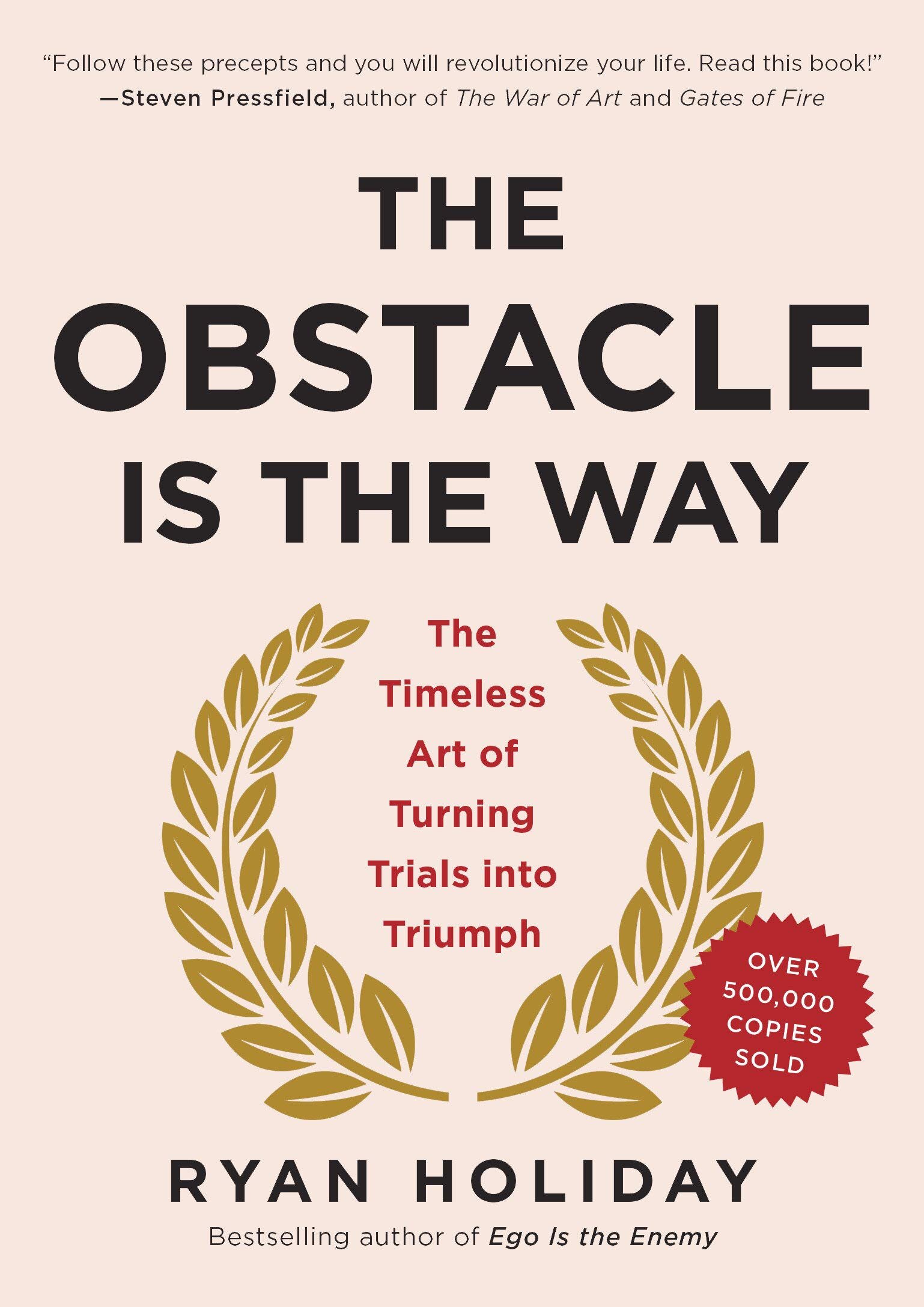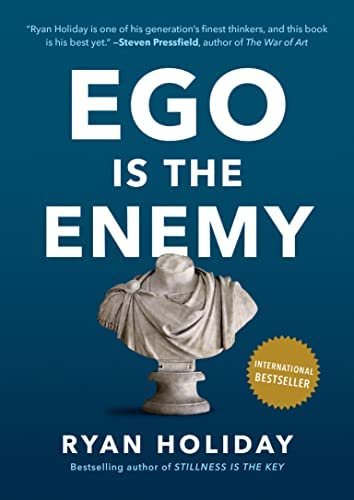The Daily Stoic: 366 Meditations on Wisdom, Perseverance, and the Art of Living – by Ryan Holiday and Stephen Hanselman
Date read: 3/29/17. Recommendation: 9/10.
If you're this far along in my reading list and you're on board with Stoicism, you'll enjoy this book. The greater your interest in Stoic philosophy, the more you're going to get out of the book. It's a tremendous resource. There's also a daily newsletter that offers brief overviews of many topics covered in the book. I don't normally recommend signing up for mailing lists, but this one is worth checking out. It's a great daily reminder and a solid introduction to Stoicism if you're looking for a place to start.
See my notes below or Amazon for details and reviews.
my notes:
Stoicism was a school of philosophy founded in Athens by Zeno of Citium in the early third century BC. Its name is derived from the Greek stoa, meaning porch, because that's where Zeno first taught his students. Painted porch (Stoa Poikilê).
Stoicism assets that virtue (meaning, chiefly, the four cardinal virtues of self-control, courage, justice, and wisdom) is happiness, and it is our perceptions of things - rather than the things themselves - that cause most of our trouble.
Stoics framed their work around a series of exercises in three critical disciplines:
-The Discipline of Perception (how we see and perceive the world around us)
-The Discipline of Action (the decisions and actions we take - and to what end)
-The Discipline of Will (how we deal with the things we cannot change, attain clear and convincing judgment, and come to a true understanding of our place in the world)
"Of all people only those are at leisure who make time for philosophy, only they truly live. Not satisfied to merely keep good watch over their own days, they annex every age to their own. All the harvest of the past is added to their store. Only an ingrate would fail to see that these great architects of venerable thoughts were born for us and have designed a way of life for us." -Seneca
Control and Choice
"The chief task in life is simply this: to identify and separate matters so that I can say clearly to myself which are externals not under my control, and which have to do with the choices I actually control. Where then do I look for good and evil? Not to uncontrollable externals, but within myself to the choices that are my own..." -Epictetus
The single most important practice in Stoic philosophy is differentiating between what we can change and what we can't. What we have influence over and what we do not.
Perception, Action, Will
Control your perceptions. Direct your actions properly. Willingly accept what's outside your control.
If You Want To Be Unsteady
The image of the Zen philosopher is the monk up in the green, quiet hills, or in a beautiful temple on some rocky cliff. The Stoics are the antithesis of this idea. Instead, they are the man in the marketplace, the senator in the Forum, the brave wife waiting for her soldier to return from battle, the sculptor busy in her studio. Still, the Stoic is equally at peace.
Peace is Staying the Course
Seneca uses the greek word euthymia, which he defines as: "believing in yourself and trusting you are on the right path, and not being in doubt by following the myriad of footpaths of those wandering in every direction." It is this state of mind, he says, that produces tranquility.
Tranquility and peace are found in identifying our path and in sticking to it.
The Truth About Money
"Let's pass over to the really rich - how often the occasions they look just like the poor! When they travel abroad they must restrict their baggage, and when haste is necessary they dismiss their entourage. And those who are in the army, how few of their possessions they get to keep." -Seneca
Money only marginally changes life...external things can't fix internal issues.
Watching the Wise
"Take a good hard look at people's ruling principle, especially of the wise, what they run away from and what they seek out." -Marcus Aurelius
You Don't Have to Stay on Top of Everything
"If you wish to improve, be content to appear clueless or stupid in extraneous matters - don't wish to seem knowledgeable. And if some regard you as important, distrust yourself." -Epictetus
For the Hot-Headed Man
"A real man doesn't give way to anger and discontent, and such a person has strength, courage, and endurance - unlike the angry and complaining. The nearer a man comes to a calm mind, the closer he is to strength." -Marcus Aurelius
Anger is not impressive or tough - it's a mistake. It's weakness. Depending on what you're doing, it might even be a trap that someone laid for you.
Cultivating Indifference Where Others Grow Passion
Imagine the power you'd have in your life and relationships if all the things that trouble everyone else - how thin they are, how much money they have, how long they have left to live, how they will die - didn't matter so much. What if, where others were upset, envious excited, possessive, or greedy, you were objective, calm, and clearheaded? Can you envision that? Imagine what it would do for your relationships at work, or for your love life, or your friendships.
The Present is All We Possess
"Were you to live three thousand years, or even a countless multiple of that, keep in mind that no one ever loses a life other than the one they are living, and no one ever lives a life other than the one they are losing. The longest and shortest life, then, amount to the same, for the present moment lasts the same for all and is all anyone possesses. No one can lose either the past or the future, for how can someone be deprived of what's not theirs?" -Marcus Aurelius
The Best Retreat Is In Here, Not Out There
"People seek retreats for themselves in the country, by the sea, or in the mountains. You are very much in the habit of yearning for those same things. But this is entirely the trait of a base person, when you can, at any moment, find such a retreat in yourself." -Marcus Aurelius
Pay What Things Are Worth
Remember that next time you hear someone ramble on about how the market decides what things are worth. The market might be rational...but the people who comprise it are not.
Becoming An Expert in What Matters
At the end of your time on this planet, what expertise is going to be more valuable - your understanding of matters of living and dying, or your knowledge of the '87 Bears? Which will help your children more - your insight into happiness and meaning, or that you followed breaking political news every day for thirty years.
Pay Your Taxes
There are many forms of taxes in life. You can argue with them, you can go to great - but ultimately futile - lengths to evade them, or you can simply pay them and enjoy the fruits of what you get to keep.
Washing Away The Dust of Life
"Watch the stars in their courses and imagine yourself running alongside them. Think constantly on the changes of the elements into each other, for such thoughts wash away the dust of earthly life." -Marcus Aurelius
Looking at the beautiful expanse of the sky is an antidote to the nagging pettiness of earthly concerns. And it is good and sobering to lose yourself in that as often as you can.
Character is a powerful defense in a world that would love to be able to seduce you, buy you, tempt you, and change you. If you know what you believe and why you believe it, you'll avoid poisonous relationships, toxic jobs, fair-weather friends, and any number of ills that afflict people who haven't thought through their deepest concerns. That's your education. That's why you do this work.
Be The Person You Want To Be
Spend some time–real, uninterrupted time–thinking about what's important to you, what your priorities are. Then, work toward that and forsake all the others. It's not enough to wish and hope. One must act–and act right.
Would I be better saying words or letting my actions and choices illustrate that knowledge for me?
Here is how to guarantee you have a good day: do good things. Any other source of joy is outside your control or is nonrenewable. But this one is all you, all the time, and unending. It is the ultimate form of self-reliance.
Always Have a Mental Reverse Clause
Just because you've begun down one path doesn't mean you're committed to it forever, especially if that path turns out to be flawed or impeded. At the same time, this is not an excuse to be flighty or incessantly noncommittal. It takes courage to decide to do things differently and to make a change, as well as a discipline and awareness to know that the notion of "Oh, but this looks even better" is a temptation that cannot be endlessly indulged either.
Take A Walk
"We should take wandering outdoor walks, so that the mind might be nourished and refreshed by the open air and deep breathing." -Seneca
The Obstacle is the Way
"While it's true that someone can impede our actions, they can't impede our intentions and our attitudes, which have the power of being conditional and adaptable. For the mind adapts and converts any obstacle to its action into a means of achieving it. That which is an impediment to action is turned to advance action. The obstacle on the path becomes the way." -Marcus Aurelius
You have the power to use the Stoic exercise of turning obstacles upside down, which takes one negative circumstance and uses it as an opportunity to practice an unintended virtue or form of excellence.
Receive Honors and Slights Exactly the Same Way
It can be so easy to get distracted by, even consumed by, horrible news from all over the world. The proper response of the Stoic to these events is not to not care, but mindless, meaningless sympathy does very little either (and comes at the cost of one's own serenity, in most cases).
Stoic Joy
Joy, to Seneca, is a deep state of being. It is what we feel inside it us and has little to do with smiles and laughing.
The Good Life Is Anywhere
We tell ourselves that we need the right setup before we finally buckle down and get serious. Or we tell ourselves that some vacation or time alone will be good for a relationship or an ailment. This is self-deceit at its finest.
Silence Is Strength
The inexperienced and fearful talk to reassure themselves. The ability to listen, to deliberately keep out of a conversation and subsist without its validity is rare. Silence is a way to build strength and self-sufficiency.
The Supreme Court of Your Mind
Think about someone you know who has character of granite. Why are they so dependable, trustworthy, excellent?Why do they have a sterling reputation? You might see a pattern: consistency. They are honest not only when it's convenient. They are not only there for you when it counts.
You become the sum of your actions, and as you do, what flows from that - your impulses - reflect the actions you've taken. Choose wisely.
Corralling The Unnecessary
The key to accomplishing that is to ruthlessly expunge the inessential from our lives. What vanity obligates us to do, what greed signs us up for, what ill discipline adds to our plate, what a lack of courage prevents us from saying no to. All of this we must cut, cut, cut.
Don't Be Miserable In Advance
"It's ruinous for the soul to be anxious about the future and miserable in advance of misery, engulfed by anxiety that the things it desires might remain its own until the very end. For such a soul will never be at rest - by longing for things to come it will lose the ability to enjoy present things." -Seneca
What Would Less Look Like?
One way to protect yourself from the swings of fate - and from the emotional vertigo that can result - is by living within your means now. So today, we can try to get used to having and surviving on less so that if we are ever forced to have less, it would not be so bad.
Overconfidence is a great weakness and a liability. But if you are already humble, no one will need to humble you - and the world is much less likely to have nasty surprises in store for you. If you stay down to earth, no one will need to bring you - oftentimes crushingly so - back down.
Anyone Can Get Lucky, Not Everyone Can Persevere
Anyone can get lucky. There's no skill in being oblivious, and no one would consider that greatness. On the other hand, the person who perseveres through difficulties, who keeps going when others quit, who makes it their destination through hard work and honesty? That's admirable, because their survival was the result of fortitude and resilience, not birthright or circumstance.
It Could Happen To You
"Being unexpected adds to the weight of a disaster, and being a surprise has never failed to increase a person's pain. For this reason, nothing should ever be unexpected by us. Our minds should be sent out in advance to all things and we shouldn't just consider the normal course of things, but what could actually happen. For is there anything in life that Fortune won't knock off its high horse if it pleases her?" -Seneca
We must prepare in our minds for the possibility of extreme reversals of fate.
The Vulnerability of Dependance
"Anyone who truly wants to be free," Epictetus said, "won't desire something that is actually in someone else's control, unless they want to be a slave."
We could look at the upcoming day and despair at all the things we don't control: other people, our health, the temperature, the outcome of a project once it leaves our hands. Or we could look out at that very same day and rejoice at the one thing we do control: the ability to decide what any event means.
The Most Valuable Asset
"But the wise person can lose nothing. Such a person has everything stored up for themselves, leaving nothing to Fortune, their own goods are held firm, bound in virtue which requires nothing from chance, and therefore can't be either increased or diminished." -Seneca
A Mantra Of Mutual Interdependence
"Meditate often on the interconnectedness and mutual interdependence of all things in the universe. For in a sense, all things are mutually woven together and therefore have an affinity for each other - for one thing follows after another according to their tension of movement, their sympathetic stirrings, and the unity of all substance." -Marcus Aurelius
Inherent to the Stoic concept of Sympatheia is the notion of an interconnected cosmos in which everything in the universe is part of a larger whole.
No amount of travel or reading or clever sages can tell you what you want to know. Instead, it is you who must find the answer in your actions, in living the good life - by embodying the self-evident principles of justice, self-control, courage, freedom, and abstaining from evil.
"Character is fate." -Hereclitus
Who Gets The Lion's Share?
"Aren't you ashamed to reserve for yourself only the remnants of your life and to dedicate to wisdom only that time can't be directed to business?" -Seneca
The average person somehow manages to squeeze in twenty-eight hours of television per week - but ask them if they has time to study philosophy, and they will probably tell you they're too busy.
Accepting What Is
You don't have to believe that there is a god directing the universe, you just need to stop believing that you're the director. As soon as you can attune your spirit to that idea, the easier and happier your life will be, because you will have given up the most potent addiction of all: control.
All Is Fluid
"The universe is change. Life is opinion." -Marcus Aurelius
Our understanding of what something is is just a snapshot - an ephemeral opinion. The universe is in a constant state of change. Nothing is exempt from this fluidity, not even the things we hold most sacred.
Judge Not, Lest...
Leave other people to their faults. Nothing in Stoic philosophy empowers you to judge them - only to accept them. Especially when we have so many of our own.
The Glass Is Already Broken
Devastation is a factor of how unlikely we considered that event in the first place. No one is wrecked by the fact that it's snowing in the winter because we've accepted (and even anticipated) this turn of events.
Attachments Are The Enemy
Attachments to an image you have of a person, attachments to wealth and status, attachments to a certain place or time, attachments to a job or to a lifestyle. All of those things are dangerous for one reason: they are outside of our reasoned choice. How long we keep them is not in our control.
Pretend Today Is The End
"Philosophy does not claim to get a person external possession. To do so would be beyond its field. As wood is to the carpenter, bronze to the sculptor, so our own lives are the proper material in the art of living." -Epictetus
Spendthrifts of Time
"No person hands out their money to passersby, but to how many do each of us hand out our lives! We're tight-fisted with property and money, yet think too little of wasting time, the one thing about which we should all be the toughest misers." -Seneca
Meaningless...Like A Fine Wine
You don't get a prize at the end of your life for having consumed more, worked more, spent more, collected more, or learned more about the various vintages than everyone else. You are just a conduit, a vessel that temporarily held or interacted with these fancy items.



